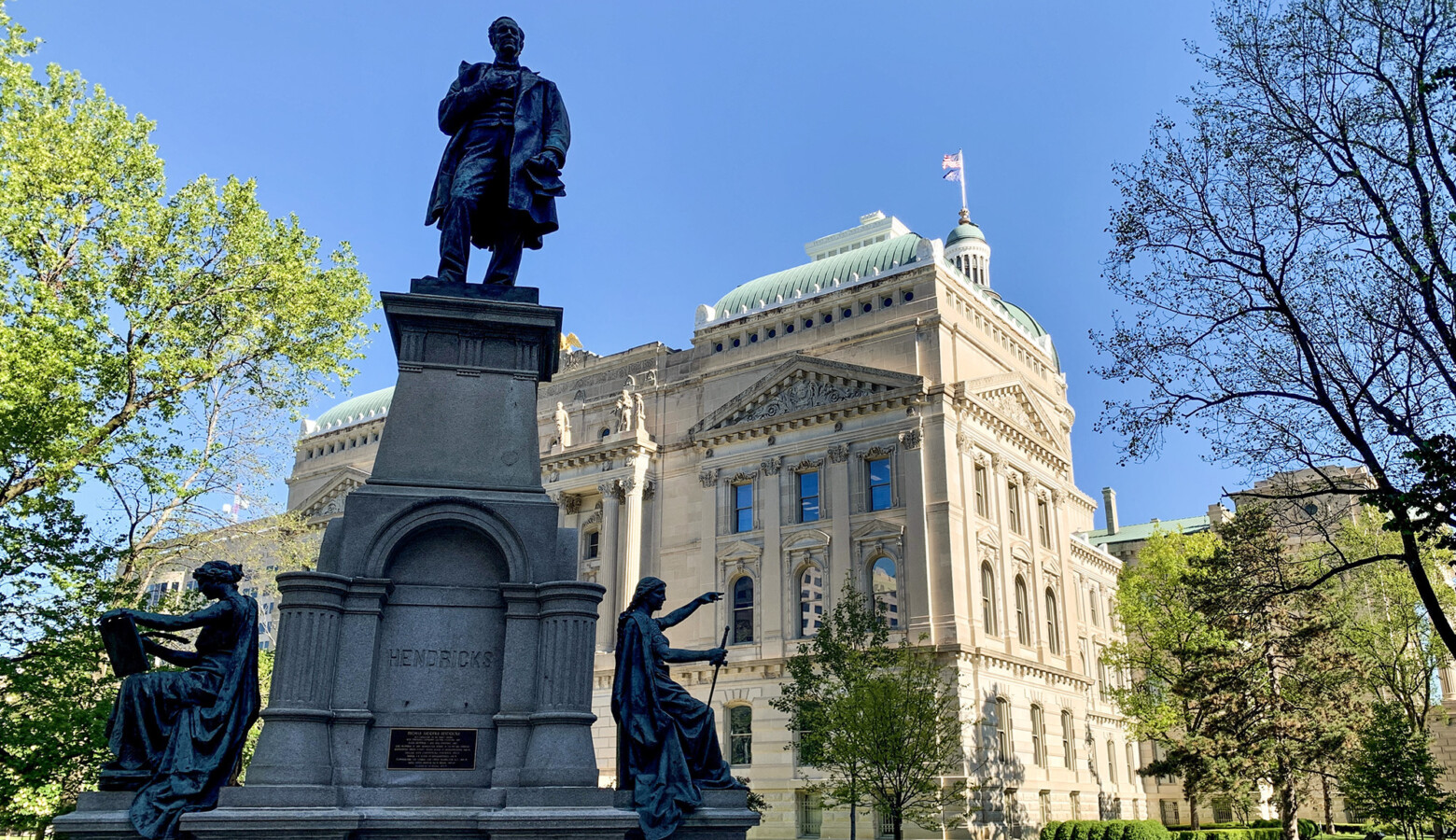Indiana Legislative Maps Among Most Biased In Country, Says Study

Indiana’s current legislative maps are more skewed towards one party – in this case, Republicans – than 95 percent of all legislative maps in the country over the last 50 years.
That’s according to a new study commissioned by activist group Women4Change Indiana.
Hoosier Republicans typically get between 54 and 59 percent of the vote in statewide races. Christopher Warshaw, George Washington University associate professor of political science, conducted the study and said that should mean that Republicans hold legislative majorities of around 60 percent.
“But instead, Republicans have 78 percent of the seats in Congress and almost 80 percent of the seats in the state senate,” Warshaw said.
Indiana has undergone a political shift over the last decade. But Warshaw said those sorts of transitions typically take time when it comes to legislative seats.
“But we saw Indiana was not a long, gradual shift,” Warshaw said. “It was exactly when the new map went into place in 2012 that the level of bias in favor of Republicans really, really shifted.”
The Indiana legislative maps drawn in 2011 were never challenged in court and were even praised by, among others, the Washington Post.
And the GOP often cites the fact that 88 percent of all county elected officials are Republicans. But Warshaw said that doesn’t refute his analysis because so many of Indiana counties are small. The 10 largest Hoosier counties, in fact, have roughly the same population as the other 82 counties.
READ MORE: Lawmakers Plan To Push Back End Of Session For Delayed Redistricting
Join the conversation and sign up for the Indiana Two-Way. Text “Indiana” to 73224. Your comments and questions in response to our weekly text help us find the answers you need on statewide issues.
Women4Change Indiana executive director Rima Shahid said Warshaw’s study should matter to every Hoosier.
“No matter what issue you care about – whether you care about the environment, whether you care about public education, whether you care about transit, whether you care about health care … the first step to making change in the state of Indiana is by having fair maps,” Shahid said.
Indiana lawmakers will draw new legislative maps later this year. And Shahid said Hoosiers are asking for that process to be open, fair and competitive.
But she said that’s not what she expects.
“They’re going to not get better, in my opinion. They might get worse,” Shahid said. “How much worse can we get?”
Indiana Republicans have repeatedly rejected efforts at redistricting reform over the last few years.
Contact reporter Brandon at bsmith@ipbs.org or follow him on Twitter at @brandonjsmith5.

